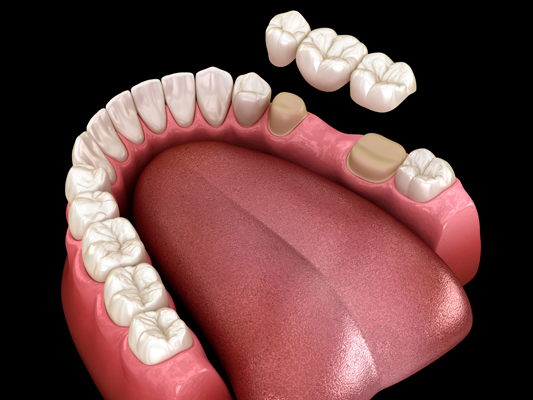The Longevity of Dental Bridges: What You Should Know

Dental bridges are an effective and popular way to restore missing teeth, offering cosmetic and functional benefits. When you properly care for and maintain your bridge, it can significantly improve oral health and restore the confidence you have in your smile. However, several factors can influence the longevity of dental bridges.
Understanding dental bridges
Dental bridges are prosthetic devices that replace one or more missing teeth by anchoring them to adjacent natural teeth or implants. They help maintain facial structure, prevent the remaining teeth from shifting, and restore chewing and speaking functions. Although dental bridges can last long, their lifespan depends on several factors.
The average lifespan of dental bridges
Depending on the type of material used, the average lifespan of dental bridges ranges from five to fifteen years. They can often last even longer with proper oral hygiene and regular follow-up dental visits. The material used in the construction of the bridge can impact the bridge's overall durability. Popular materials used include:
- Porcelain
- Ceramic
- Porcelain-fused-to-metal
- Metal alloys
- Zirconia
- Composite resin
For example, zirconia is known for its strength and resistance to wear, which can contribute to extending the longevity of the dental bridge.
The impact of oral hygiene
The patient's oral hygiene can impact the longevity of their dental bridge since the health of the supporting teeth, also known as abutment teeth, is essential for the overall success of the bridge. Daily brushing, flossing, and using interdental brushes or floss threaders can help prevent decay and gum disease. Additionally, the patient should schedule regular professional cleanings and checkups to monitor the dental bridge's condition and the surrounding tissues' health.
The importance of function and location
Another key factor that affects the durability of dental bridges is the location in the mouth. Bridges placed in areas that endure significant biting force, such as the back molars, may experience more wear and stress over time. As a result, they may require more frequent professional evaluation or earlier replacement than bridges placed in other areas of the patient's mouth.
Lifestyle habits that affect the lifespan of dental bridges
Lifestyle choices also contribute to the lifespan of dental bridges. Habits such as teeth grinding (bruxism), chewing on hard objects, or using teeth as tools to open packages can cause damage to both the bridge and supporting teeth. In cases where signs of bruxism are present, using a night guard can help protect the restoration and the natural teeth from excessive force during sleep.
What to do when dental bridges need to be replaced
In cases where a bridge fails or reaches the end of its service life, replacement options are available. The dentist can assess the condition of the existing bridge and recommend the most appropriate course of action. One option may involve creating a new dental bridge to replace the old one. However, the patient may also consider alternatives such as a partial denture or dental implants.
Learn more about dental bridges
With the right care and maintenance, dental bridges can last for years. Are you curious about how to protect your dental bridge? Call our Bowie office to learn more or to schedule an appointment.
Request an appointment here: https://www.gatewaydental.org or call Gateway Dental Dr. William Swann DDS at (301) 485-7492 for an appointment in our {{ ITY}} office.
Check out what others are saying about our dental services on Yelp: Dental Bridges in Bowie, MD.
Recent Posts
A dental bridge is an option for those who have lost teeth and need to fill in that space to complete their smile or bite. The procedure involves crowns being placed on supporting teeth (known as abutment teeth) that are fused with your missing tooth or teeth by what's called an implant post. The tooth-replacement…
A dental bridge can help restore your dental health and appearance. Tooth loss can cause more dental problems. Replacing the missing teeth can restore your smile and improve your dental health. Getting this dental restoration might be the tooth loss solution you need. Here are the three basic dental bridge benefits you must consider.Losing at…
There are several instances in which a dental bridge is the most appropriate solution for teeth replacement. A dental bridge can be used to replace a single missing tooth or a section of missing teeth, and it provides certain benefits that traditional dentures and dental implants do not. This review highlights what a dental bridge is…
Did you know that you can repair teeth gaps with a dental bridge? The purpose of a dental bridge is to replace missing teeth, which often leads to cosmetic, functional, and oral health concerns. Understanding the pros and cons of dental bridge treatment can help you decide whether it is right for you or if…


